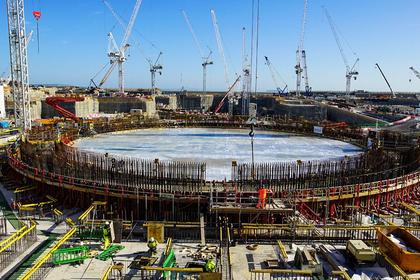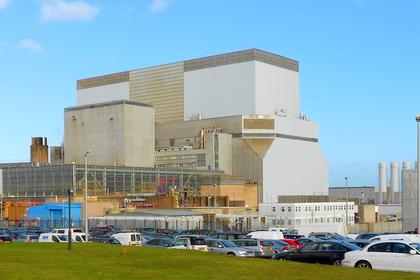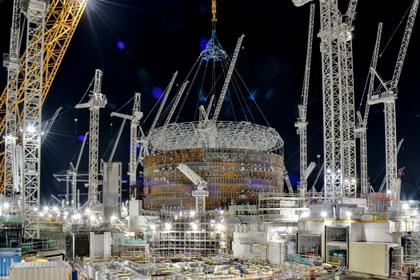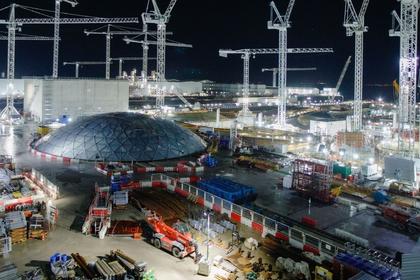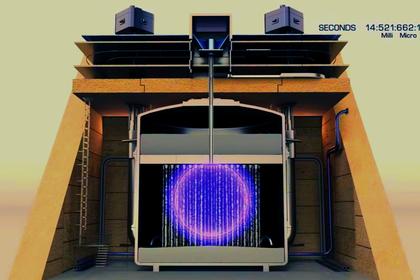
BRITAIN'S FUSION DEVELOPMENT

WNN - 21 June 2022 - Future fusion energy facilities will continue to be regulated by the Environment Agency (EA) and Health & Safety Executive (HSE), the UK government has confirmed in its response to a consultation seeking views on the regulatory framework for ensuring the safe and effective rollout of fusion energy. Fission power plants are regulated by the Office for Nuclear Regulation.
In October 2021, the government published the Green Paper: Towards Fusion Energy, outlining its proposals for a regulatory framework for fusion energy in the UK. The consultation, which ran between October and December 2021, provided an opportunity for the public, industry, academia and other fusion stakeholders to share knowledge and offer views. The proposals cover the regulation of: occupational and public health and safety; environmental protection; planning consent; third party liabilities; security and safeguards for radioactive material.
The government has now published its response to the consultation, to which it received 58 submissions. It confirms that: current UK regulators of fusion R&D facilities (EA and HSE) will retain responsibility for fusion; this regulatory approach will apply to all planned fusion prototype energy facilities in the UK; and the government will legislate to make clear in law the regulatory treatment of fusion energy.
"The government is clear that the regulatory framework for fusion must continue to be based on the best available evidence and technical expertise, particularly given that fusion is a developing technology," the Department for Business, Energy & Industrial Strategy said. "It must also uphold clear separation between the regulators and fusion developers, whilst recognising that appropriate engagement between regulators and fusion developers is necessary for the regulatory framework to be effective."
It added: "The UK government has concluded that the existing regulatory framework for fusion would be appropriate for a fusion energy facility, and that a fusion energy facility would not need to be developed on a nuclear site."
The Office of Nuclear Regulation is responsible for the regulation of the safety and security of nuclear installations in the UK. However, fusion reactors are not prescribed installations for the purposes of the Nuclear Installations Act 1965.
George Freeman, Minister for Science, Research and Innovation said: "Input from UK and international experts has been invaluable in helping the government to reach a decision on how to regulate this rapidly evolving, cutting-edge technology. We remain confident that existing regulations in the UK will be able to uphold safety standards in a proportionate way.
"While the hazard and complexity of fusion energy facilities will be greater than current research facilities, we remain confident that existing regulations in the UK will be able to uphold safety standards in a proportionate way. We are also clear that the fundamental differences between nuclear fission and fusion mean that it would be disproportionate and unnecessary to incorporate fusion energy facilities into nuclear regulations."
He said the government will now move to implement its proposals on fusion regulation, using the Energy Security Bill to remove any residual uncertainty in the current legal framework.
UKAEA CEO Ian Chapman added: "This early confirmation of a proportionate regulatory framework will help accelerate the progress of fusion energy, which has great potential to deliver safe, sustainable, low-carbon energy for generations to come. It demonstrates our government's high-level support and progressive approach to enabling fusion to happen here in the UK."
As set out in Prime Minister Boris Johnson's Ten Point Plan for a Green Industrial Revolution, released in November 2020, the government wants the UK to be the first country in the world to commercialise fusion energy technology. As part of this, the government aims to demonstrate the commercial viability of fusion by building a prototype fusion power plant, STEP (Spherical Tokamak for Energy Production). The UK hopes to deliver the world's first prototype fusion power plant by 2040. The site of the demonstration plant is expected to be announced later this year.
-----
Earlier:
